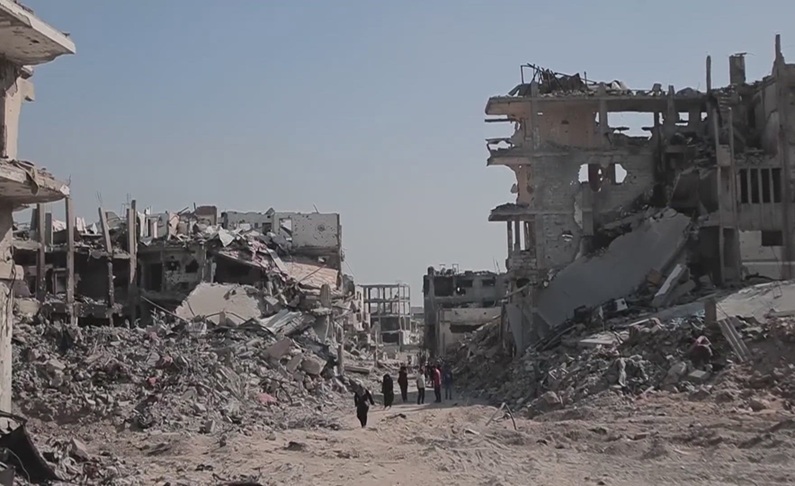In an unexpected turn of events, Israel and Hamas have seemingly taken a monumental step toward halting the devastating conflict in Gaza with the announcement of a tentative ceasefire agreement. The news, revealed separately by President Biden and Qatar’s Prime Minister, has captured the world’s attention as it promises to bring relief to a war-ravaged region. Both sides are reportedly preparing to end over 15 months of brutal fighting, following weeks of intense, indirect negotiations that took place in Doha, Qatar, with mediation from a team that included envoys from both the Biden administration and President-elect Donald Trump.
Though neither Israel nor Hamas has officially confirmed the deal, the gravity of the moment is palpable. Israeli officials have raised concerns over “unresolved points,” but they remain hopeful that the details will be finalized soon. As the countdown to Sunday begins, both governments are under immense pressure to ratify the terms that will aim to release hostages, facilitate humanitarian aid, and work toward a phased de-escalation of military activities. The international community, led by the United Nations, has warmly welcomed the announcement, yet the reality on the ground remains uncertain, as ongoing violence continues to claim lives.
For Israel, the ceasefire would initiate a process where Hamas would release 33 Israeli hostages, a significant gesture that, according to reports, could involve the exchange of roughly 1,000 Palestinians from Israeli detention. While this is a rare glimmer of hope for many families, the release comes with stipulations: it’s not a blanket release, and only a portion of the hostages are expected to return home in the first phase. The military presence in Gaza will be reduced, but not entirely removed, with a full withdrawal expected only in later stages of the agreement.
The toll of the war has been staggering. The human cost of this brutal conflict has left over 46,000 Palestinians dead, the majority being women and children, while Israel has mourned the loss of 405 soldiers. The physical and psychological scars of these months of fighting will take much longer to heal, but the promise of this ceasefire, if it holds, could provide a glimmer of light at the end of a long, dark tunnel. It is a fragile moment, one that many fear could slip away, yet it is also one that many see as a last chance for peace.
As the world holds its breath, the hope is that this agreement will not only end the immediate violence but also lay the groundwork for a longer-term resolution. Families of the hostages, who have endured unimaginable pain, expressed their gratitude to both the U.S. and Qatari mediators, offering a message of cautious optimism. However, the true test of this deal will not be the promises made in diplomatic rooms, but whether the ceasefire can hold long enough for it to truly make a difference in the lives of those who have suffered most in this ongoing tragedy.
(Source: CNN | Washington Post | NBC)









